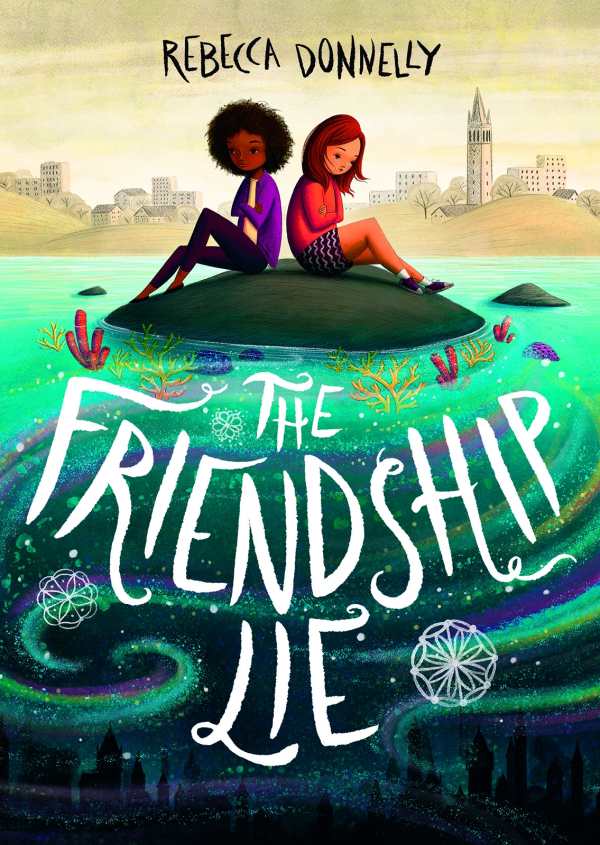The Friendship Lie
Cora, her twin brother Kyle, and their friend Sybella have been inseparable since the second grade. As they start fifth grade, though, conflict arises between Cora and Sybella, and their best-friendship seems doomed. Told through the perspectives of both girls, Rebecca Donnelly’s The Friendship Lie is a story for young readers who’re realizing that relationships aren’t always simple.
The conflict behind Cora and Sybella’s falling out isn’t explained until the end of the book, with the story unfolding in non-linear chapters titled by their place in relation to “the event.” This solve-the-mystery tone drives the book forward and makes it even more satisfying when the girls realize that uncovering the source of their misunderstanding is less important than apologizing and caring for their relationship. Perfectly capturing the struggles of navigating early interpersonal conflict, this book is designed to not only resonate with young readers, but also to subtly share wisdom regarding emotional intelligence.
Incorporating diverse experiences without belaboring their presence, The Friendship Lie also embodies social consciousness without becoming a “very special episode.” The microaggressions that Sybella experiences as a biracial child, and the fact that Dina, Cora’s father’s grad student, dates women, organically create representation without tokenization.
Cora and Sybella themselves are both whip smart young women, unique without being tropes, and they find equally confident role models in Auntie Lake and Dina. Any kid reading this book is going to subliminally acquire new environmental consciousness; the entire plot is set against the backdrop of a club created by Cora and Kyle’s father, a garbologist.
Educational without moralizing, and capturing kid logic without condescending, The Friendship Lie is a refreshing middle grade novel—and is particularly great if you’re looking for a book that passes the Bechdel test.
Reviewed by
Jessie Horness
Disclosure: This article is not an endorsement, but a review. The publisher of this book provided free copies of the book to have their book reviewed by a professional reviewer. No fee was paid by the publisher for this review. Foreword Reviews only recommends books that we love. Foreword Magazine, Inc. is disclosing this in accordance with the Federal Trade Commission’s 16 CFR, Part 255.


